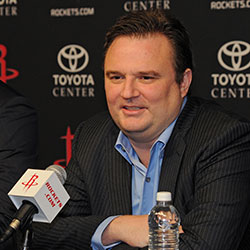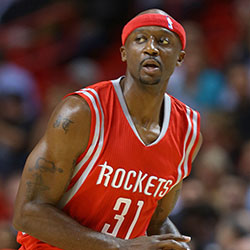Houston Rockets
Houston Rockets Salary Cap Update
With the final cuts made and season set to start, David Weiner breaks down Houston’s cap situation and how the Rockets have positioned for a trade.
Published
10 years agoon
Since striking out swinging for a super-team (a risk that, in this author’s opinion, was well worth taking), the Houston Rockets have been waiting for their next chance to get that significant hit. So far, there has been a single or two for Rockets GM Daryl Morey; but that situational at-bat has not yet presented itself for the next big swing to be taken.
With the Rockets closing the book on training camp and ready to enter the regular season, it’s time to once again take a look at the team’s current salary cap situation and where the Rockets can go from here.
Player Salary, Exceptions and Available Cap Room
(Salaries and contract information courtesy of ShamSports.com and some good old-fashioned digging.)
The Houston Rockets currently have the following player salary commitments, cap holds and salary cap exceptions available for the 2014-15 season:
Player salary commitments:
Dwight Howard ($21.44 million), James Harden ($14.73 million), Trevor Ariza ($8.58 million), Jason Terry ($5.85 million), Kostas Papanikolaou ($4.8 million), Terrence Jones ($1.62 million), Donatas Motiejunas ($1.48 million), Clint Capela ($1.19 million), Joey Dorsey ($948,163), Patrick Beverley ($915,243, non-guaranteed), Francisco Garcia ($915,243), Isaiah Canaan ($816,482), Troy Daniels ($816,482), Nick Johnson ($507,336) and Tarik Black ($507,336, partially guaranteed for $50,000), along with guaranteed money owed to Jeff Adrien ($915,243), Ish Smith ($915,243), Robert Covington ($150,000) and Akil Mitchell ($150,000).
Cap holds: None.
Exceptions:
(1) a trade exception from the Jeremy Lin trade that allows Houston to absorb one or more contracts totaling not more than $8.47 million (and which CANNOT be combined with other salaries for matching purposes in trades); and
(2) the Biannual Exception (BAE), which allows Houston to sign one or more players to contracts with starting salaries totaling $2.077 million for up to two years in length.
Given Houston’s current salary situation, the Rockets can no longer waive enough cap exceptions and salary to drop below the cap. Barring another big trade in which meaningful salary is sent out for little/nothing in return, do not expect the Rockets to have any cap room this season.
The Rockets are about $9.6 million shy of the luxury tax threshold and about $13.6 million shy of the “apron” level that also acts as a hard cap for Houston this season. That should be enough room for the Rockets to utilize most of the Lin trade exception, possibly the BAE, and still use salary matching rules to take on additional salary. If there is a move to be made for a third star player, don’t expect the luxury tax to be a significant deterrent for Rockets owner Leslie Alexander.
What Are They Doing?
As expected, Houston elected to operate over the salary cap this season, most notably because the combined value of their cap exceptions far exceeded the amount of cap room the Rockets would have had to make player acquisitions.
Instead, the Rockets have been attempting to fill out their bench with shooting (Garcia, Daniels) and defense/toughness (Dorsey, Black), all with league minimum signings. In fact, other than signing the very raw Capela to his first round rookie scale contract, Houston has only made two additions making more than the league minimum salary since trading for Ariza in mid-July.
Papanikolaou — the 24-year-old Greek small forward whose draft rights Houston held — was lured away from Europe with an eye-popping two-year deal paying him most of the Non-Taxpayer Mid-Level Exception (other than the rookie minimum-sized portion used to sign Johnson to a three-year deal). Even with the second year being both a team option and fully non-guaranteed until early October 2015 (making his contract a potentially valuable trade asset next summer), a $4.8 million starting salary is far more than players of Papanikolaou’s caliber normally receive when first coming to the NBA.
Terry — the 37-year-old veteran guard whose best days are behind him — was acquired from Sacramento in what was obviously a salary dump for the Kings. The Rockets received Terry and two potentially valuable future second round picks in exchange for the non-guaranteed contracts of Alonzo Gee and Scotty Hopson, two players who were never part of the Rockets’ future on-court plans. (Quick tangent: With the trade of Gee and Hopson, Houston’s total haul from the Omer Asik trade this past July is now Ariza, Terry, a potential lottery pick and two second rounders, making it one of the most underrated deals of the 2014 offseason.)
The Rockets also made some tough final cuts to bring their roster down to the league-mandated 15-man maximum. The most controversial of the cuts were Adrien and Smith. Many had felt that Adrien had out-played Dorsey for a backup big man spot; and coach Kevin McHale had been using Smith as his primary backup point guard throughout much of the preseason.
So why take on Terry’s contract (even for the second rounders)? Why pay Papanikolaou so much? Why keep Dorsey over Adrien? And why get rid of Smith?
Why Are They Doing That?
As I mentioned on the podcast with Dave Hardisty back on July 1, the trades of Asik and Jeremy Lin threatened to leave the Rockets devoid of contracts large enough to match salaries in major trades to add talent to the core of Howard, Harden and (now) Ariza.
By acquiring the mid-sized contracts of Terry and Papanikolaou, Morey has put himself in position to at least be able to make trades for players in just about any salary range.
While CBA rules dictate that Terry’s salary cannot be aggregated with other salaries in trades for a period of two months after he was officially acquired (that period expires on November 16), he is immediately eligible to be traded by himself for one or more players making up to nearly $8.9 million. Even if salary aggregation is required, Terry will be trade eligible long before the next mini-trade season begins in mid-December.
As a signed draft pick (rather than an outside free agent), Papanikolaou became trade-eligible only 30 days after his signing.
The most important part about Terry’s and Papanikolaou’s contracts, however, is their expiration date. Terry’s contract expires after this season; and Papanikolaou’s has a team option that will most likely be picked up but that won’t remain guaranteed unless he greatly outperforms initial expectations or a major trade is made without using his contract (it being quite likely that Papanikolaou ends up being traded or waived instead).
With both salaries cleared off the books next summer, combined with a potentially huge increase in the salary cap, the Rockets could open up a significant amount of cap room. Even if both players are waived/renounced, there is still a chance that one or both could be back on next year’s team at a reduced salary.
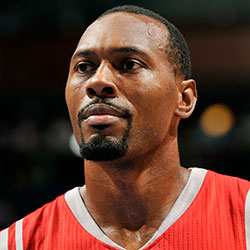
The length of Joey Dorsey’s guaranteed contract likely played a role in his making the final roster over Jeff Adrien
None of this is to say that Terry and/or Papanikolaou are not viewed as potential contributors to this Houston team. But the presence of their mid-sized contracts (versus the bevy of rookie scale and veteran’s minimum contracts currently filling Houston’s roster) will facilitate a variety of trade options that otherwise would not be available to the Rockets, all while still allowing for material cap room next summer.
Dorsey — who had been battling a foot injury for much of training camp — was signed to a two year, $2 million contract this summer, which includes a fully guaranteed salary in 2015-16. Unlike Adrien (whose contract — while fully guaranteed — would have expired after this season), Dorsey could not be cut without negatively impacting the Rockets’ available cap room in 2015. That was never really an option for Houston. This, combined with Capela’s decision not to play overseas this season, resulted in Adrien (who himself battled an ankle injury throughout training camp) being the unlucky “odd man out” among the bigs.
As for Smith (who also had a fully guaranteed one-year deal), his lack of a reliable outside shot — combined with the increasingly impressive preseason performance of Canaan and the growing belief within the organization that Terry can be passable as a backup point guard playing alongside Harden — spelled his doom. And with the Rockets otherwise lacking in depth at the small forward position behind Ariza and the rookie Papanikolaou, roster balance dictated that Garcia should claim a roster spot over Smith.
Conclusion
Morey has done an admirable (albeit not sensational) job of picking the team up off the canvass after a major swing-and-miss for a super-team. The resulting supporting group of players is expected to provide the Rockets with both added perimeter defense and improved three-point shooting — two areas that sorely hurt the Rockets last season — while still offering the flexibility to make in-season trades of significance and/or to open up significant cap room next summer.
While the scoring and play-making ability of Chandler Parsons and Lin, as well as the post defense and rebounding of Asik, will be missed in Houston, there have been improvements made in other areas. The end result, the Rockets hope, is a team better prepared for the NBA Playoffs. And maybe for a big trade, too. All while preserving flexibility to make a major addition next summer.
You may like
Houston Rockets
Looking Back on the Trade for Phoenix’s Draft Picks
Are the Rockets set to cash in on Phoenix’s downfall or could a Suns retool murky the waters?
Published
3 weeks agoon
March 12, 2025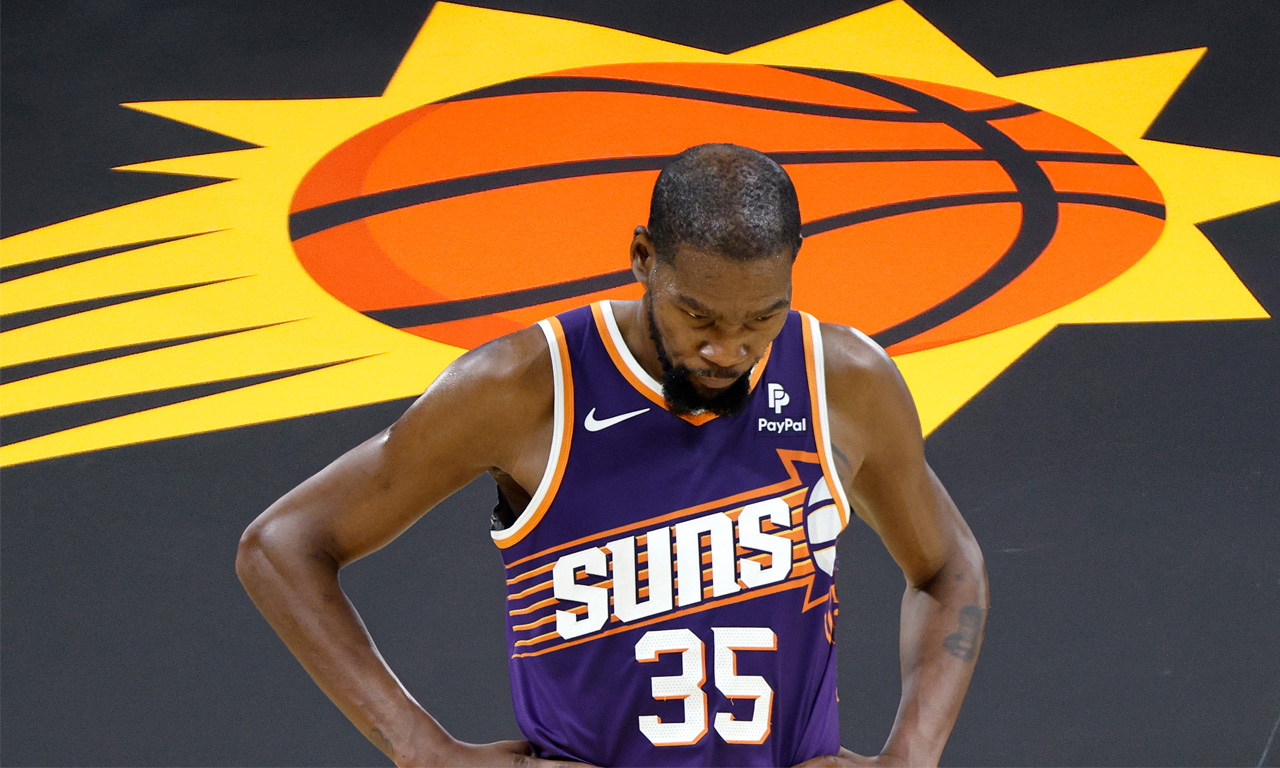
As the Houston Rockets set to host the Phoenix Suns tonight, it seems the right time to take a look back at the trade that linked these two franchises together for the foreseeable future.
This past June, the Rockets made a trade with Brooklyn that sent back to the Nets control of their 2025 and 2026 unprotected first-round picks. In exchange, the Rockets received a large chunk of Phoenix’s future (2025, 2027, 2029) and control of the Dallas Mavericks’ 2029 first.
In essence, the Rockets traded one pick and one swap for two picks and two swaps. All unprotected.
Thoughts At The Time of the Trade
If I’m going to discuss the current outlook of this trade, I have to be honest about how I saw it at the time of the move. While I didn’t hate this trade initially, I definitely didn’t love it either.
I liked that the Rockets increased their overall trade assets. I also liked that they extended the timeline to be able to make a bigger trade and I also appreciated that they kept control of the 2027 Brooklyn swap.
But I didn’t like that the Rockets gave up what seemed like the more established value (Brooklyn) for a more uncertain gamble (Phoenix). The Rockets did not control a “tanking runway” of picks to offer back to Phoenix — all of the picks Houston got in the deal were in staggered years (’25, ’27, ’29). I also felt Brooklyn, who badly needed to rebuild, got away with paying market value to get their picks back despite the fact that the Rockets invested years in watching those picks appreciate up to the point that they had the Nets completely over a barrel.
Net-net: I felt like more certainty was traded for less certainty and it was more of an equitable trade for both teams rather than Brooklyn paying dearly to get back the things only the Rockets could offer.
There were two ways I thought this trade could pay dividends: The Suns needed to flame out immediately, as in this season (unlikely), or the Rockets could trade all those pick assets as part of a deal for a real superstar in the next 12-18 months (more likely).
In a testament to how quickly change can occur in a very unpredictable NBA, four things have happened that have been positive indicators for the Rockets in making this move.
The Suns are fading
While Phoenix had major salary cap issues, dealing with the second apron, they didn’t appear to have problems on the court. They jumped out of the gate 8-1 and looked like a legitimate contender behind their star trio of scorers in Kevin Durant, Devin Booker and Bradley Beal.
Given Houston controlled Phoenix’s pick this year via a swap, it looked like the Rockets would come up empty-handed on the trade this season.
That changed quickly.
Injuries, serious depth concerns and a lack of a defensive identity has sent Phoenix spiraling. Booker’s availability has been inconsistent, forcing Durant to carry the load, while Beal has not quite fit in at all. Their financial limitations, thanks to owner Mat Ishbia’s all-in spending spree, have handcuffed their ability to improve the roster around the three stars.
The Suns are sitting 11th in the West, having gone 22-34 since that hot start, and are currently trying to catch a depleted Dallas squad to get back into the play-in picture.
As of right now, the Rockets project to end up with a lottery pick (albeit a late one) this season out of the trade.
Phoenix was caught shopping Durant
Because the Suns struggled so hard after the start, they tried to make a major move at the deadline but could not unload Beal, in large part due to his no-trade clause.
As a result, they may have made a misstep: They openly tried to trade Durant, which inevitably became public news.
Now? Durant will almost assuredly be traded this summer — likely to a destination that he handpicks. This means the Phoenix Suns will have to look at all possibilities for their future, including potentially having to give Rafael Stone and the Rockets front office a call.
But keep in mind, the Rockets can not offer Phoenix the ability to completely rebuild via the draft right now. Phoenix’s 2026 pick is controlled by Washington. They would have to get extremely creative to set that stage. A retool in Phoenix is much more likely.
Could Brooklyn have been better than expected?
This one is tougher to gauge.
The Brooklyn Nets are currently tied for fifth-worst team in the league, giving them strong lottery odds this summer. This was expected. After all, the Nets, even with a healthy Mikal Bridges and a full roster, were not a good team last season, closing the year 20-41 in the final three quarters of the season. The Rockets ended up with the #3 pick (Reed Sheppard) as a result of Brooklyn’s mediocrity.
However, if the Rockets had not placed that pick back in Brooklyn’s hands, would the Nets be better than this?
Brooklyn brought in a new coach in Jordi Fernandez that has had a positive impact. They have dumped off players, such as Dennis Schroeder and Dorian Finney-Smith, that impacted winning. The bar to make the play-in in the East (.415 winning percentage) is obscenely low, with Brooklyn being just five wins away from it at the moment.
And on top of that, Brooklyn did have lots of draft capital that they could have moved to try to win now.
It’s very tough to say as you don’t know if a team with Bridges still in Brooklyn might have actually been worse than this current squad, but you could make a case that the pick the Rockets would have ended up with from Brooklyn this season would be eerily similar to the one they will end up getting from Phoenix this year.
Again, this is a tough call.
Nico Harrison Hooked the Rockets Up
As part of the trade, the Rockets got control of the Dallas Mavericks’ 2029 first-round pick (unprotected, of course). While there’s really no way of knowing what a pick will be five years out, we did know that Luka Doncic would be just 29-30 years old that season and it was fairly etched in stone that he would be the core piece of a Dallas squad that season.
Enter chaos in Dallas.
Doncic was shipped out in the trade that shocked the world, which could have a major impact on the Rockets. Dallas’ current core of Kyrie Irving and Anthony Davis will be 37 and 36 years old that season, respectively.
On paper, the value of that pick shot up.
Final Summary
Right now, the outlook on these picks looks strong. One source stated off the record that they feel the 2029 Phoenix pick is the best pick asset out there that is owned by another team. The Rockets would be reluctant to add that one specifically into any trade unless it’s for a truly legitimate star.
But if there is any lesson that the NBA teaches us over and over again, it’s that it’s very hard to predict where a team will be a year from now, much less three years from now.
Can the Rockets pressure Phoenix and leverage the ownership they have of their draft capital to get what they really want (Booker) from them? Could a Suns retool around Booker and Beal, with the right pieces and assets acquired from a Durant trade, significantly change their on-court outlook and cap sheet — which in turn could damage the value of the picks Houston controls?
Bottom line is it has worked out well this season, and the future forecast at the moment is promising. The current value of those future picks appears strong. What will likely determine history’s final grade for this trade will be how it sets them up for the trade to come, and that’s where fans will be looking to Stone and the front office for action starting this summer.
Houston Rockets
Amen Thompson’s ankle injury will be re-evaluated in one week
“The things he does you can’t replicate,” says Rockets coach Ime Udoka
Published
4 weeks agoon
March 10, 2025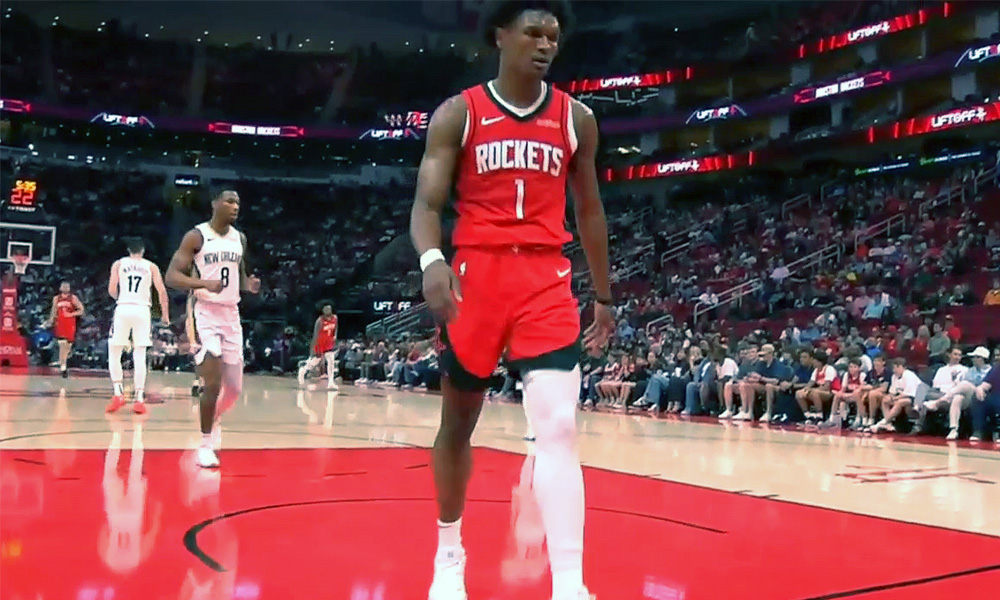
Rockets young star Amen Thompson will have his ankle injury re-evaluated in one week, according to Ime Udoka.
Thompson had an MRI on Sunday and the Rockets coach confirmed all imaging (X-ray, MRI) was negative.
“Just some swelling and pain, obviously,” said Udoka.
If you listen to Udoka, you can tell he knows how special Amen is to this team. He said the Rockets are missing a lot by not having him out there.
“Obviously, the things he does you can’t replicate,” said Udoka. “[Amen is] a guy that plays every position for us. When one goes down, he runs the point. If another is out, he runs the four.”
Amen is one of the best defensive players in the game, and as a one-on-one defender of guards/wings, he might already be the best in the league in just his second season. He’s holding his opponents to 40.5% shooting from the field, tops in the league.
“He’s a very unique defensive player,” said Udoka. “We got some guys that do some great things there, but I like to put him and Dillon on the best two usually, night to night. You got Tari and that’s a luxury as well, but the way he goes about it is different. His athleticism, size, speed, strength, shotblocking ability, steals… he’s all over the place.”
“Hard to replicate for sure.”
Amen injured his ankle late Saturday night in a blowout win against the Pelicans, but the unfortunate part was he probably should not have been on the floor in the first place.
The Rockets left Amen Thompson in the game in a blowout to get one more rebound for a triple-double and he just got injured. He's heading to the locker room with a limp. https://t.co/UBtrEpgWuU pic.twitter.com/D8GeKP8sQk
— ClutchFans (@clutchfans) March 9, 2025
The Rockets had built well over a 30-point lead by early fourth quarter. Jalen Green was able to rest the entire fourth. Alperen Sengun came out of the game with 7-8 minutes left while Dillon Brooks and Tari Eason came out with 6:00 left. But Thompson, who had posted an insane +39 on-off number, remained in the game because he was one rebound shy of a triple-double with 15 points, 11 assists and nine rebounds.
Udoka addressed that decision on Monday before the game against Orlando.
“What I typically don’t do is wholesale substitutions,” said Udoka of the decision to keep Amen in the game. “Albeit 30[-point lead] at six minutes [left] is different than losing to Minnesota, a 16-point lead with four minutes [left].”
“I’ve seen it go both ways in the past. You take out guys too early and have to bring starters back, and vice versa.”
Thompson has played in 60 games this season, five short of being eligible for postseason awards. He absolutely should be up for an All-Defensive nod this season so keep an eye on him getting back in time for that. He would need to return to action no later than April 4th for the game against the OKC Thunder in order to play enough games to be eligible.
Houston Rockets
How the Kyrie Irving Injury Impacts Rockets
Houston’s draft positioning and offseason plans could be impacted by Dallas
Published
1 month agoon
March 4, 2025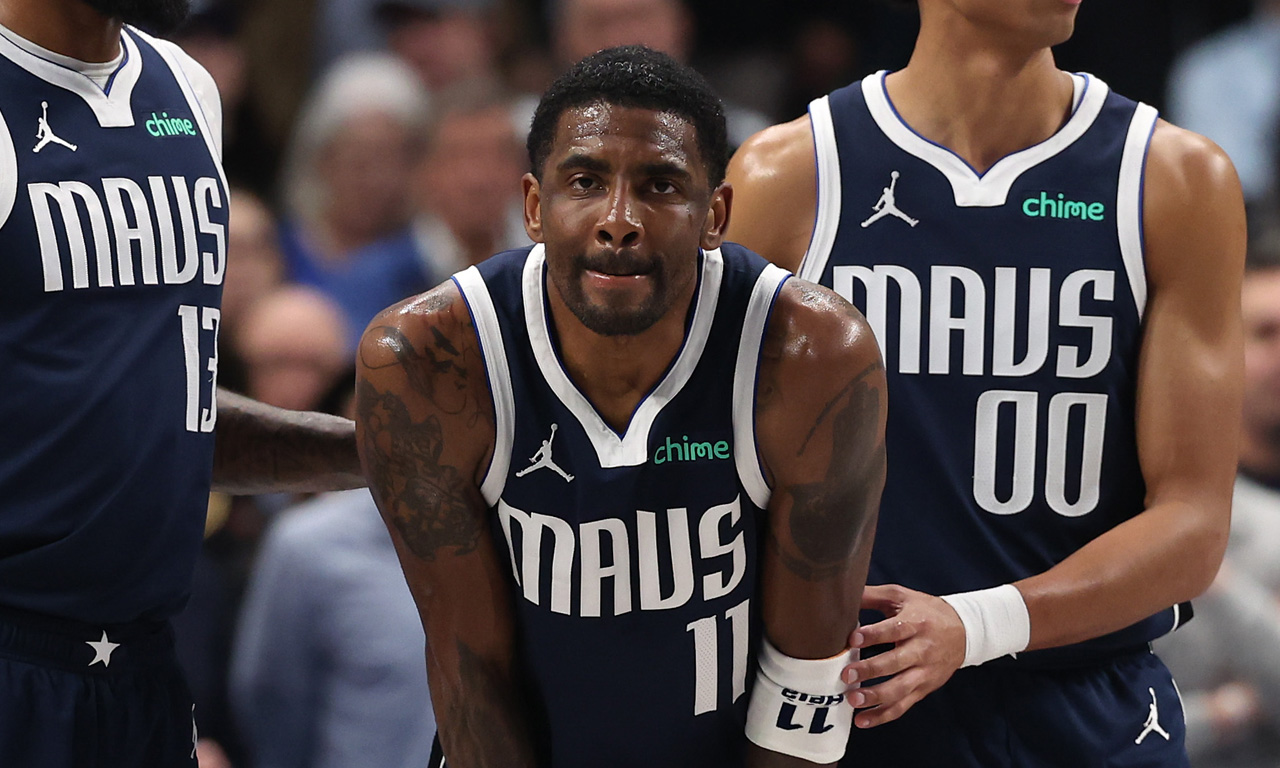
Dallas Mavericks guard Kyrie Irving was injured Monday night and the news dropped on Tuesday that the knee injury is serious — a torn ACL in his left knee that will end his season and a good portion of next season as well.
Brutal. I can’t think of an NBA team that imploded faster than the Dallas Mavericks.
You trade away a 25-year-old phenom who just hoisted you on his back en route to the NBA Finals a year ago. You cashed in that golden ticket to go all-in on a trio of aging stars in Kyrie, Anthony Davis, and Klay Thompson.
Bold strategy, Nico. Let’s see if it pays off.
(Narrator: It’s not paying off.)
The Mavericks had some interesting potential this year and maybe the next couple of years once everyone was healthy, but now? Their star guard is likely out until the calendar year 2026 and Klay and AD aren’t getting any younger nor more durable. The Mavericks may have actually swapped their future for a present that never arrives — and Dallas GM Nico Harrison has to be feeling overwhelming pressure right now.
So how does this impact the Rockets?
For starters, Houston has a game remaining on the schedule against Dallas on March 14th at Toyota Center — Davis may or may not be back for that game.
More importantly, Dallas is the 10th seed in the West at the moment, just 3.5 games ahead of the Phoenix Suns (11th seed). The Rockets control Phoenix’s first-round pick unprotected this season via a swap. We need as many West teams as possible ahead of Phoenix to keep them out of the play-in/playoffs and to push them as deep into the lotto as possible.
This complicates that. Phoenix’s remaining schedule is the toughest in the NBA by a good margin, with plenty of games left against the league’s best teams, so it still looks promising overall — but we’re talking about Kevin Durant, Devin Booker and Bradley Beal. They can still get hot at the right time while Dallas may struggle.
So keep a close eye on that. The good news is the Portland Trail Blazers are one of the hottest teams in the league and they are (shockingly) nipping at the Arizona squad’s heels.
Taking a look ahead to the offseason, the Kevin Durant Pursuit will be big.
This one is a little more complicated for Houston. The Rockets really want Devin Booker but, as of now, the Phoenix plan appears to be to trade KD this offseason and retool around Booker. The Rockets will have interest in Durant but they’re not going to sell the farm (prospects and all the picks) for a 37-year old like they would for Booker.
Three teams that I’ve heard a lot about from Rockets circles that will be in the mix are Houston, Minnesota and Dallas — Timberwolves and Mavericks have been considered the main competition. But, a lot of this will depend on Durant himself and where he wants to play at this stage of his career.
Keep in mind also, if the Suns are “retooling” around Booker and Beal (holding the no-trade clause), then they could be placing a higher priority on win-now players over the return of their own draft assets. The Rockets definitely have the best assets overall to offer up in any trade package between those three teams, but if Phoenix does prefer finding the right ready-to-win players around Booker/Beal, that gives Dallas and Minnesota a real chance.
This injury “may” take Dallas out of the equation, and they are/were definitely a contender for KD’s services given his past relationship with Kyrie and the way Dallas was positioned to win right now. Does KD at his age want to wait for Kyrie to be healthy?
And one last friendly reminder: The Rockets control that Dallas 2029 first (unprotected).
Houston Rockets
Rockets Sign David Roddy to Two-Way Contract
Former first-round pick has played with the Grizzlies, Suns and Hawks
Published
1 month agoon
March 3, 2025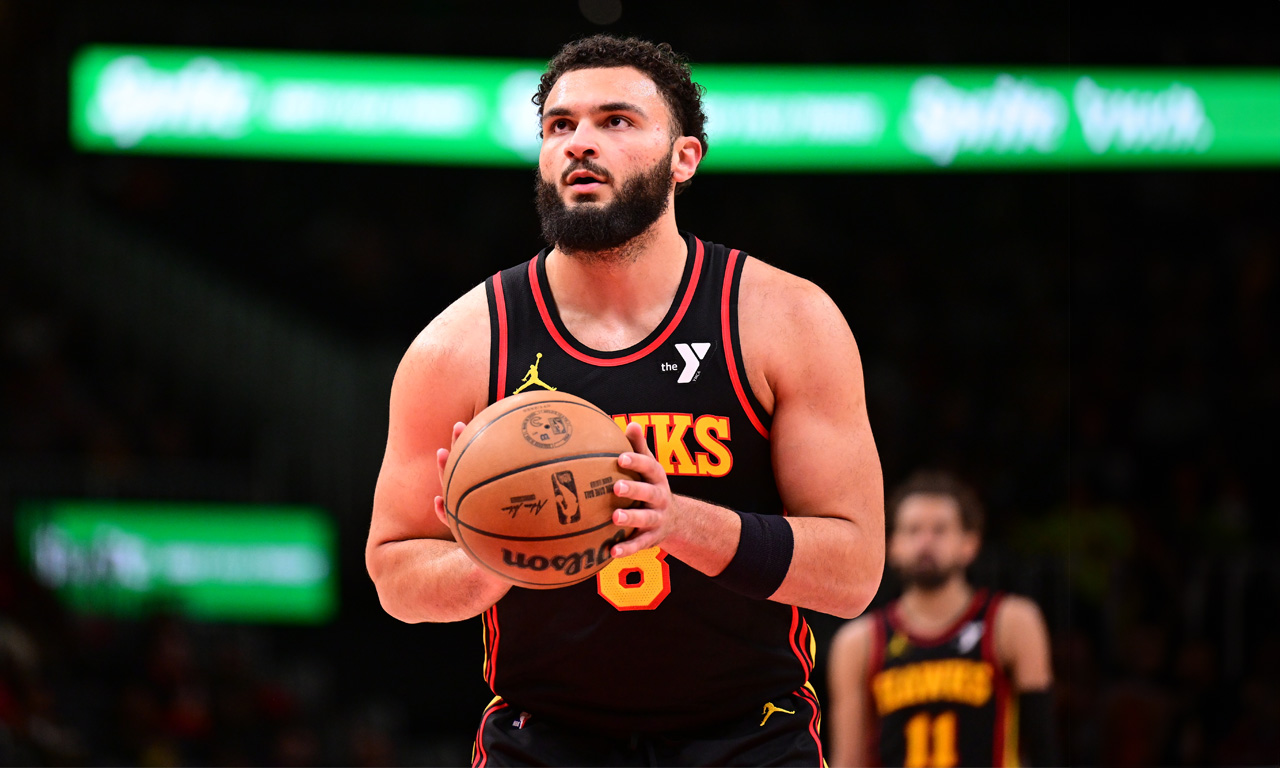
The Rockets made a move on Monday, signing former first-round pick David Roddy to a two-way contract.
The two-way spot opened up after the front office signed Jeenathan Williams to a standard four-year, $8.2 million contract (with friendly team options all along the way).
Roddy is 6-foot-5 and 250+ pounds but sports a 6-foot-11 wingspan. He was taken with the 23rd pick in the first round of the 2022 NBA Draft — six selections after the Rockets drafted Tari Eason. A standout in college, Roddy averaged 19.2 points, 7.5 rebounds, 2.9 assists, 1.2 steals, and 1.1 blocks per game during his junior season at Colorado State.
Roddy, who turns 24 later this month, is a physical player who can play multiple positions. He’s a solid rebounder for his size/position. He has played in 165 games over three seasons with the Grizzlies, Suns, Hawks and most recently Sixers, averaging 6.2 points and 2.9 rebounds per game.
The guard/forward has not shown efficient shooting, however — he’s a career 30.5% three-point shooter and just 68.4% from the line. His defense is better inside than out.
Ultimately, it will be those two things — three-point shooting and defense — that will determine his chances of carving out a consistent role in the league.
All in all, it’s a low-risk signing and the Rockets get a look at a prospect that fits their age timeline.
Houston Rockets
Houston a potential landing spot for Ben Simmons post-buyout?
Published
2 months agoon
February 6, 2025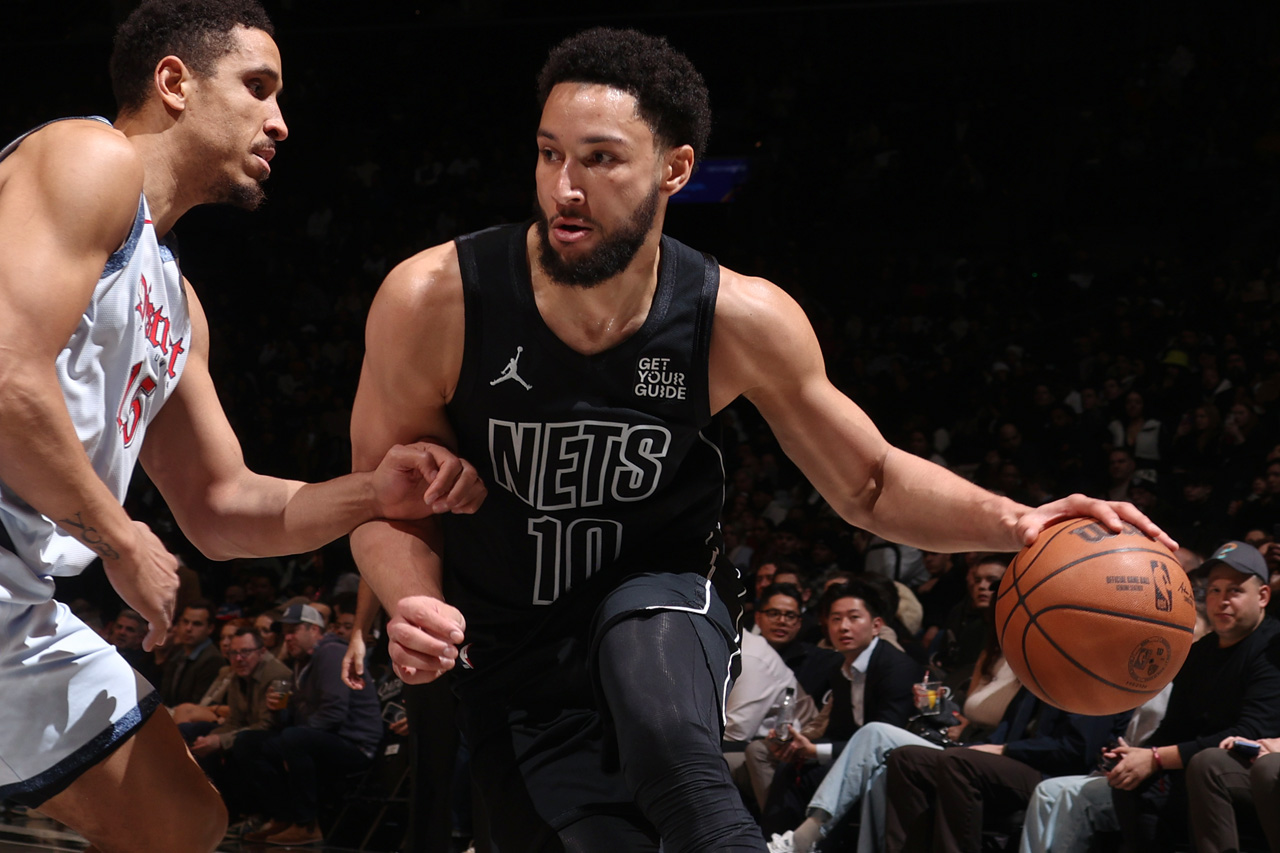
ESPN NBA analyst Brian Windhorst said on Thursday’s NBA Trade Deadline show that Brooklyn Nets forward Ben Simmons is working on a buyout and the Houston Rockets is a potential landing spot for him.
“Cleveland and Houston are two situations for Ben Simmons,” said Windhorst.
Brian Windhorst says the Cavaliers and Rockets are buyout locations for Ben Simmons.
Thoughts? pic.twitter.com/7ly4mvmxr5
— ClutchFans (@clutchfans) February 6, 2025
Advertisement
Rockets coach Ime Udoka was an assistant coach in Philadelphia in 2019-20 when Simmons was with the Sixers, before injuries took a significant toll. In fact, Udoka, when speaking about Amen Thompson earlier this season, brought up some comparisons to Simmons.
“The skill set is there, and it’s something that’s unique with his speed, athleticism, size, passing ability, and all those things,” said Udoka of Thompson. “I coached somebody, Ben Simmons, who had similar traits… as far as size and ability to push the pace, and find guys and finish. There are some similarities there.”
Both Thompson and Simmons are known for their elite athleticism, defensive versatility, and ability to create opportunities in transition.
However, can Simmons help the Rockets today? That’s the tough question.
Simmons has played in 33 games this season, averaging 6.2 points, 6.9 assists, 5.2 rebounds, 0.8 steals and 0.5 blocks in 25 minutes a night. He does not shoot threes (like, at all) — he has only attempted two threes in the past three seasons combined.
Ideally, he does not play in front of your young forwards of Amen, Tari Eason and Jabari Smith Jr. and on that basis alone, I think I would pass. But, Ime loves defensive dogs and he could use some extra ballhandling on the roster. You can see that there’s little in the way of offensive organization when Fred VanVleet is out.
There would be a comical full circle moment though if the Rockets did sign Ben Simmons, considering the Rockets were heavily criticized for trading James Harden in 2021 to Brooklyn instead of to Philadelphia for Simmons. The Rockets clearly made the right choice there.

